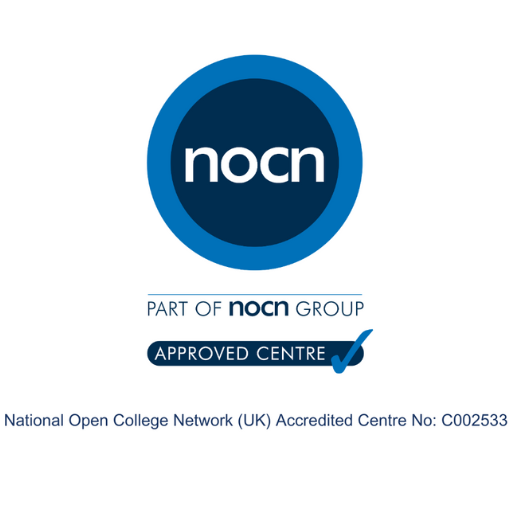- Home
- About Us
- EGSA Courses
- Doctor of Business Administration
- Executive Master Of Human Resource Management
- Postgraduate Certificate In People Management & Employment Relations
- UK Level 1 Certificate Introduction To The Hospitality Industry
- UK Level 5 Diploma In Productivity Improvement Practice
- UK Level 7 Diploma In Strategic Leadership Of Performance And Productivity
- SHRM Advance Certificate In HRM
- Micro-Credential
- Workforce Optimisation and Restructuring
- Certified Payroll Practitioner: Administrations And Processing
- Strategic Training Investment and ROI Analysis
- Winning the Talent Battle: Effective Recruitment Strategies
- Leveraging HR Data: Metrics, Analysis, and Analytics
- Designing a Competitive Compensation and Benefits Package
- Enhancing Staff Engagement, Retention, and Value
- Integrating HRBP Skills with Organisational Strategy
- Designing & Implementing an Effective HR Strategy Blueprint
- Understanding the Industrial Relations and Employment Act of Malaysia
- Managing People Performance & Tenure
- Manpower Optimisation & Restructure
- Managing Employee Misconduct & HR Documentation
- ICQA Courses
- WR Academy
- Articles
- Contact us
UK Level 5 Diploma In Productivity Improvement Practice
Download Level 5 Brochure
Find more detailed information on our programs, including:
- Program fees
- Career pathways
- Course descriptions
- Academic profiles

UK Level 5 Diploma In Productivity Improvement Practice
This Ofqual accredited Diploma in Productivity Improvement Practice (Strategic Manager) (Qualification No: 603/0640/3) UK program delivered by EDUK8U Grad School Asia with a hybrid learning over a 12 month period. The NOCN UK Diploma in Productivity Improvement Practice (Strategic Manager) is the equivalency of UK Ofqual to AQF Advance Diploma Level and Pathway to Australia or UK University.

- UNIQUENESS DEFINED
- THIS PROGRAMME IS FOR
- THE 12 UNITS COVERED ARE
Diploma in Productivity Improvement Practice (Strategic Manager):
- Equivalent to an Australian Advanced Diploma level (source: UK ENIC – the UK National Information Centre for the Recognition and Evaluation of International Qualifications and Skills.)
- Pathway to Australia or UK University
Qualification Benefits:
- Provides an edge against other school leavers
- Opens up admissions accessibility to tertiary institutions worldwide
UK, Australia, New Zealand, Canada, Europe
Addressing Future Challenges:
- Offers a solution to significant challenges in the future of work
- Opportunity to jump start learning and transition to the workforce
- Students who have finished secondary schooling and are looking for an internationally recognised diploma
- Parents who aspire for their children to study abroad such as in Australia, United Kingdom, New Zealand.
- Students who are looking for a flexible study schedule
- Students that are interested in business productivity, optimisation, and management
- Students who have future plans to study and work abroad
- Students looking to have a competitive advantage in the business world.
- Students looking to have a competitive advantage in the business world progressing to a career as an example of Project Management, Logistics, Operations Management, Administration, Strategic Management
- Identification and Planning of Productivity Improvement projects. (M/615/0425)
- Productivity Improvement Project definition and approval. (T/615/0426)
- Idea development for Productivity Improvement projects. (A/615/0427)
- Data Analysis in support of Productivity Improvement projects. (F/615/0428)
- Productivity Improvement Project Reporting. (J/615/0429)
- Implementation Planning for Productivity Improvement projects. (A/615/0430)
- Productivity Improvement Project Implementation.(F/615/0431)
- Productivity Improvement Project Evaluation and Review. (J/615/0432)
SPECIALISATION SUBJECTS (Strategic Manager)
- Strategic Planning. (Y/506/7528)
- Risk and Issue Management. (R/506/7527)
- Leadership & Management of Productivity Improvement. (F/506/7510)
- Innovation & Creativity. (L/506/7509)

Course Information
Duration
18 Months
Classroom
Hybrid / Online Virtual
Level of Study
UK Level 5 Diploma
Certification
UK Accreditation Ofqual UK Level 5 Diploma Qualification No: 603/0640/3
Learn Without Limits
- Innovation & Creativity
- Strategic Planning
- Risk and Issue Management
- Productivity Improvement Project Reporting
- Productivity Improvement Project Implementation
- Productivity Improvement Project Evaluation and Review
- Productivity Improvement Project definition and approval
- Idea development for Productivity Improvement projects
- Data Analysis in support of Productivity Improvement projects
- Leadership & Management of Productivity Improvement
- Implementation Planning for Productivity Improvement projects
- Identification and Planning of Productivity Improvement projects
Featured Courses

Doctor Of Business Administration
ACBSP Accredited Program Awarded by IBAS International Business Academy of Switzerland
- 24 - 48 months
- 100% online

MBA in Project Management
Human Capital & Cross Border Employability Academy Australia Work Experience and Industry Immersion
- 24 months
- Online / Blended

Executive Master Of Human Resource Management
NOCN Executive Master & SHRM Advance Certificate in Human Resource Management
- 9 months
- Online / Blended

UK Level 5 Diploma In Productivity Improvement Practice
UK Accreditation Ofqual UK Level 5 Diploma Qualification No: 603/0640/3
- 18 Months
- Online Classroom
Alumni Feedback






